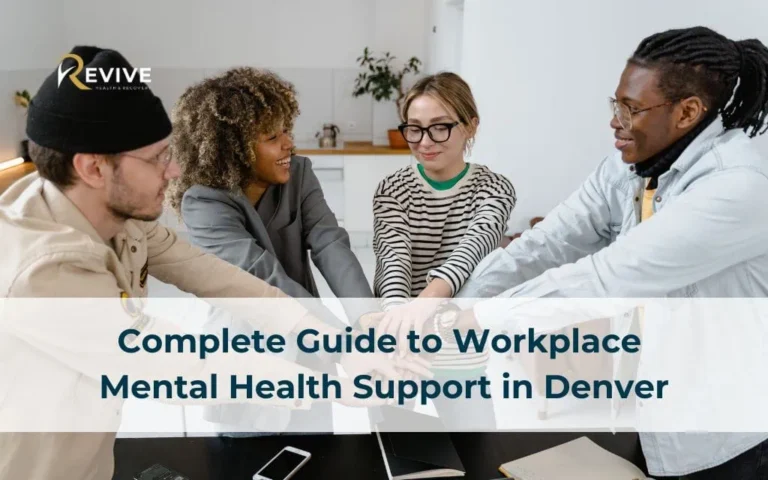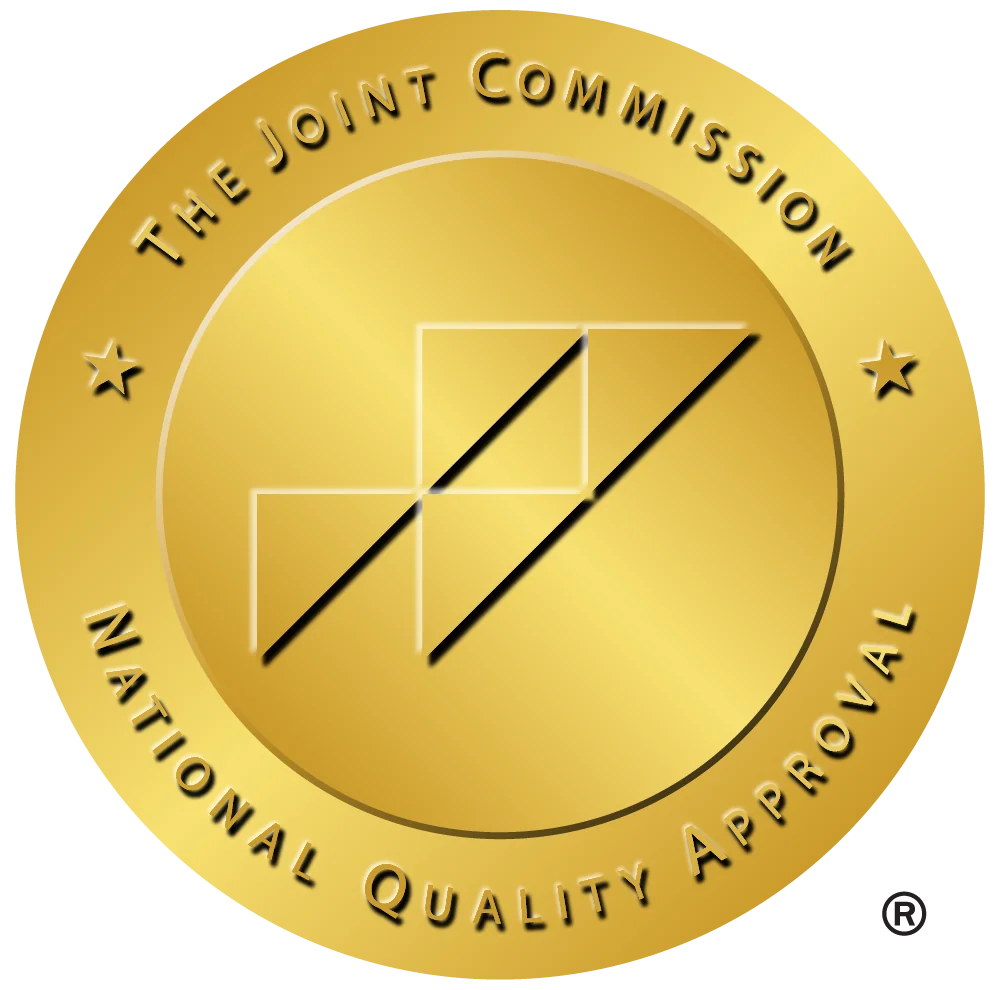Physical signs of mental illness often go unnoticed or misunderstood, yet they are critical indicators of underlying psychological conditions. These signs, such as changes in sleep patterns or persistent fatigue, can reveal much about an individual’s mental health state. Recognizing these early symptoms allows for timely intervention, which is essential for effective treatment and recovery.
Mental health struggles manifest in ways that extend beyond emotional or cognitive issues. From unexplained headaches to drastic appetite changes, the body often reflects the turmoil of the mind. Understanding these physical manifestations is a vital step in reducing the stigma surrounding mental health and encouraging individuals to seek help before conditions worsen. Revive Health Recovery provides a personalized and compassionate approach to addressing these issues.
Understanding Physical Manifestations of Mental Illness
Mental illness doesn’t just affect thoughts and emotions; it profoundly influences the body. The intricate mind-body connection means that when mental health deteriorates, the body often signals distress through various physical symptoms. These symptoms are not imaginary; they are real, measurable responses to mental health challenges such as anxiety, depression, or post-traumatic stress disorder.
Common Physical Signs of Mental Illness
The physical signs of mental illness vary, but many are subtle, creeping into daily life until they disrupt normal functioning. Persistent headaches, digestive problems, and muscle pain often appear without an identifiable medical cause, pointing to stress or unresolved emotional trauma. Recognizing these signs can make a significant difference in receiving timely care.
Changes in Sleep Patterns (e.g., insomnia, hypersomnia)
Sleep disturbances are a hallmark physical symptom of mental health struggles. Insomnia, where an individual finds it challenging to fall or stay asleep, often accompanies anxiety or depression. Conversely, hypersomnia, an overwhelming need for excessive sleep, is linked to conditions like bipolar disorder.
Appetite and Weight Fluctuations
Appetite changes are another common indicator of mental illness. Some individuals may lose interest in food entirely, leading to weight loss, while others turn to comfort eating, resulting in significant weight gain. These shifts are particularly pronounced in conditions like depression, where emotional distress directly influences hunger-regulating hormones.

The Connection Between Stress and Physical Pain
Stress can cause physical signs of mental illness that many people don’t realize are connected to their mental health. When someone is stressed for a long time, the body produces too much cortisol, a stress hormone. This can lead to inflammation, aches, and pains that might seem like regular physical problems.
Because these symptoms often feel like separate health issues, people might not realize they are linked to mental health. The good news is that by understanding these connections and managing stress, it’s possible to improve both mental and physical well-being.
Unexplained Headaches and Stomachaches
Headaches and stomachaches are frequent physical complaints among those with mental health struggles. Stress and anxiety often manifest as tension headaches, while gastrointestinal distress—such as nausea or irritable bowel symptoms—can stem from emotional turmoil. These symptoms highlight how environmental stressors contribute to mental illness.
Chronic Fatigue and Muscle Tension
Always feeling tired or having muscle aches for no clear reason can be one of the physical signs of mental illness. For example, anxiety can keep your body on high alert, causing constant fatigue and tension in your muscles.
The good news is that by understanding and treating the mental health causes, these physical symptoms can improve. Taking care of your mind can help your body feel better, too, leading to a healthier and happier life.

Behavioral and Emotional Changes as Warning Signs
Mental illness isn’t limited to physical symptoms; it also triggers profound changes in behavior and emotions. Identifying these changes early is crucial for initiating appropriate care.
Observable Behavioral Shifts
Behavioral shifts often accompany physical symptoms, signaling a deeper struggle. These shifts include withdrawal from previously enjoyed activities or sudden outbursts of irritability. Observing these changes can provide essential clues to an individual’s mental health state.
Increased Irritability or Apathy
Irritability or apathy are subtle but significant signs of mental illness. Increased irritability may reflect underlying anxiety, while apathy—a lack of interest in daily life—is often associated with depression. These behaviors, if persistent, warrant attention and support.
Long-Term Effects of Ignoring Symptoms
Ignoring the physical and behavioral signs of mental illness can lead to severe consequences. Long-term neglect of mental health can also exacerbate medical conditions, demonstrating the importance of early detection.

Why Early Recognition of Physical Signs of Mental Illness Matters
Identifying physical signs of mental illness early provides a pathway to effective treatment and recovery. Timely intervention can prevent the condition from escalating and improve quality of life.
Benefits of Timely Intervention
The advantages of recognizing mental illness early cannot be overstated. From reducing the risk of crisis situations to enhancing treatment outcomes, early intervention is pivotal.
Preventing Crisis Situations
Mental health crises, such as severe depressive episodes or panic attacks, are often preventable with early care. Recognizing and addressing physical and emotional signs before they worsen ensures individuals receive the help they need.
Improving Treatment Outcomes
Treatment is most effective when initiated early. Conditions like anxiety or depression respond better to therapy and medication when diagnosed promptly. This approach helps individuals regain control and build resilience against future challenges.
Role of Loved Ones in Early Detection
Family and friends play a vital role in identifying the signs of mental illness. By observing changes in behavior and physical health, loved ones can encourage individuals to seek professional help. Revive Health Recovery emphasizes the importance of involving loved ones in the treatment journey to create a strong support system.

Resources for Mental Health Support in Denver
Denver, Colorado, has many great mental health resources to help people get the care they need. Mental health challenges often come with physical signs of mental illness, like feeling tired all the time or changes in how much you eat. Paying attention to these signs and seeking help early can make a big difference.
Revive Health Recovery is a top provider in Denver, offering personalized mental health and addiction care. Their team focuses on creating solutions that fit each person’s unique needs, making recovery possible and helping people live healthier, happier lives.
Services Offered by Revive Health Recovery
Revive Health Recovery is a trusted name in Denver for those seeking compassionate, effective care for mental health and addiction challenges. As a privately-owned clinic, Revive Health Recovery combines cutting-edge treatments with personalized support to ensure that every patient receives the care they deserve.
Mental Health Services
Revive Health Recovery offers a wide range of mental health services designed to address conditions such as anxiety, depression, PTSD, and more. The clinic employs evidence-based therapies, including cognitive-behavioral therapy (CBT), trauma-focused therapy, and mindfulness-based interventions. These approaches are tailored to address both the physical and emotional signs of mental illness, empowering individuals to regain balance and resilience.
For those dealing with the long-term effects of mental health struggles, Revive provides integrative care that includes wellness coaching and support for physical health. The clinic also offers virtual therapy sessions, making care accessible to individuals who prefer the convenience and privacy of remote appointments.
Addiction Treatment Services
Revive Health Recovery also specializes in addiction treatment services, addressing the complex interplay between substance use and mental health. Many individuals battling addiction experience mental illness risk factors, such as environmental causes or childhood trauma. The clinic’s dual diagnosis approach ensures that both addiction and underlying mental health issues are treated simultaneously, improving recovery outcomes.
Programs include detox services, professional counseling, group therapy, and relapse prevention strategies. With a focus on holistic recovery, Revive also incorporates lifestyle modifications, stress management techniques, and family support into its treatment plans.
How to Seek Help in Denver, Colorado
Finding the right mental health support in Denver begins with understanding the resources available and taking proactive steps to access care. Recognizing the physical and emotional signs of mental illness is crucial, but knowing where to turn for help is equally important.
Connecting with Revive Health Recovery
Revive Health Recovery is committed to making the process of seeking help as simple and stress-free as possible. Individuals can begin their journey by reaching out to the clinic directly through their website or by phone. A compassionate intake team guides patients through the assessment process, ensuring that their unique needs are thoroughly understood.
Leveraging Community Resources
Denver offers additional resources to complement the services provided by Revive Health Recovery. Local community centers, non-profits, and hotlines, such as the Colorado Crisis Services, provide immediate support for those in distress. These services often collaborate with clinics like Revive to create a continuum of care, ensuring that no one feels alone in their journey toward recovery.

Overcoming Barriers to Care
For many individuals, the stigma surrounding mental illness or the fear of cost can prevent them from seeking help. Revive Health Recovery addresses these concerns by fostering a nonjudgmental environment and offering flexible payment options. Whether through insurance, payment plans, or financial assistance, the clinic strives to ensure that high-quality care is accessible to all.
Taking the first step toward mental health recovery can be daunting, but in Denver, the path is supported by a robust network of resources. Whether you’re experiencing physical signs of mental illness or seeking help for a loved one, Revive Health Recovery stands ready to guide you toward healing and wellness.
Conclusion
Mental illness can often show up as physical signs of mental illness, like trouble sleeping, constant tiredness, or ongoing aches and pains. These are the body’s way of reacting to emotional stress. Noticing these signs early is important because it can lead to faster help and better results.
At Revive Health Recovery in Denver, Colorado, we offer caring and personalized support for mental health challenges. As a privately-owned clinic, we focus on meeting each person’s unique needs. With virtual options and flexible payment plans, we make high-quality care easy to access. By knowing more about mental health topics, recognizing the signs of mental illness early and getting the right help, recovery becomes possible, and brighter days are ahead.







